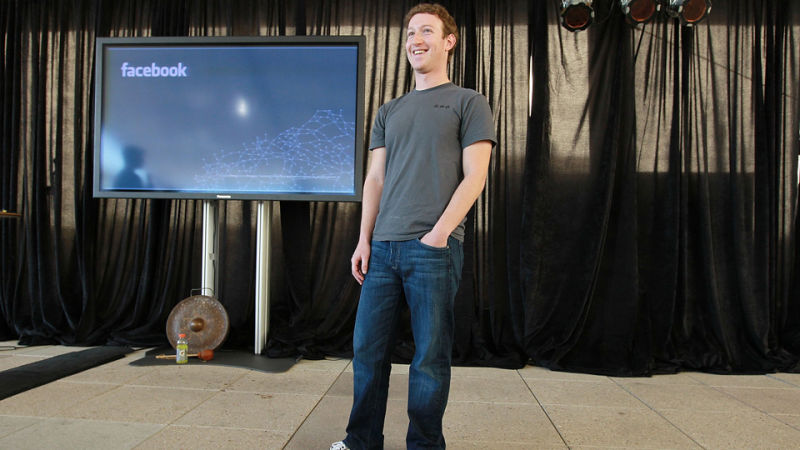Advertisers accuse Apple of “sabotage” for using cookie-blocking technology in its new Safari web browser
This is signifcant.
A letter signed by nearly every major advertising trade group is criticizing Apple for its plan to use cookie-blocking technology in the updated version of its Safari web browser.
In the letter, first obtained by AdWeek, they argue that the change will not only hurt the user experience but will also “sabotage the economic model for the Internet.”
They say Apple is replacing existing user-controlled cookie preferences with its own set of “opaque and arbitrary standards for cookie handling.”
Why it matters: This is the start of a war between platforms and publishers and advertisers are getting caught up in it.
Tech companies are making these types of changes in response to backlash over advertising tactics that create a poor user experience — and now advertisers, who’ve become accustomed to using them for years, are fighting back.
Posted in: Infographic of the day | Leave a CommentThe jig is up. Washington is gunning for Silicon Valley
I’ve been banging on about this for months, and BuzzFeed editor-in-chief Ben Smith captures it perfectly … “The bad new politics of big tech”:
Facebook should probably ease out of the business of bland background statements and awkward photo ops, and start worrying about congressional testimony. Amazon, whose market power doesn’t fall into the categories envisioned by pre-internet antitrust law, is developing a bipartisan lobby that wants to break it up. Google’s public affairs efforts are starting to look a bit like the oil industry’s.
These are the existential collisions with political power that can shake and redefine industries and their leaders, not the nickel-and-dime regulatory games Silicon Valley has played to date.
Be smart: This is the most important under-appreciated trend reshaping politics/tech/biz.
Posted in: Infographic of the day | Leave a CommentRussian government used Facebook to organize anti-immigrant rallies in the U.S
Should Lyft go public before Uber?
 When new Uber CEO Dara Khosrowshahi last week told the troops not to expect an IPO until at least 18 months from now, it sparked an interesting question: Should Lyft accelerate its own IPO plans, in order to gain a first-mover advantage?
When new Uber CEO Dara Khosrowshahi last week told the troops not to expect an IPO until at least 18 months from now, it sparked an interesting question: Should Lyft accelerate its own IPO plans, in order to gain a first-mover advantage?
- The argument here seems to be one of creative destruction. A publicly-traded Lyft could effectively reset Uber’s private valuation, thus causing cap table chaos, more board disputes, unhappy employees, etc
- Even if it doesn’t raise again privately, the public comp could delay Uber’s own IPO (i.e., make it wait to grow into its private valuation).
- Plus, Lyft wouldn’t have to go public in the shadow of Uber’s much larger numbers (at least not fully-audited ones).
Inaudible commands can hack Siri, Amazon Echo
Researchers at Zhejiang University were able to hack voice assistants like Alexa and Siri using frequencies too high for humans to hear that were still picked up by the devices.
Why it’s scary: Many “hey Siri” functions may be harmless, but the researchers could also tell an Amazon Echo to “unlock the back door,” redirect the navigation system of an Audi Q3, or install malware on an iPhone. The researchers used a smartphone with just $3 worth of extra hardware. With a little technological expertise, this method could easily be replicated.
Why it matters: Security experts worry the the so-called Internet of Things (including connected devices like digital assistants) are highly vulnerable to security breaches and other attacks not anticipated by manufacturers.
Posted in: Infographic of the day | Leave a CommentTwo-thirds (67%) of U.S. adults get news from social media site
Two-thirds (67%) of U.S. adults get news from social media sites, up from last year’s figure of 62%, according to a Pew Research Center study out today. But not all platforms are equal in delivering news to users:
- Facebook still beats out every other social media site as the top news bearer among social media sites, with 45% of Americans reporting getting news from Facebook. That’s indicative of the fact that a larger percentage of Americans (66%) use Facebook than the other social media sites in the survey.
- For Twitter, 74% of its users get news there (up 15 percentage points from last year). 29% of Snapchat users get news on the platform (up 12 percentage points from last year).
- For YouTube, 32% of its users get news there (up 21 percentage points from last year).
Amazon is looking for an HQ2. Here’s the five top contenders
Amazon’s search for a second headquarters has cities across the country scrambling to roll out the red carpet for the company, which promises to bring 50,000 new jobs and $5 billion investment — and immediate “tech hub” cred that so many communities covet.
Based on the criteria Amazon provided, as well as the tech giant’s political reality, we came up with a list of top five possible contenders to become Amazon’s second mothership.
The five cities: Denver, Chicago, Phoenix, Minneapolis and Detroit.
Our hope? Detroit.
Posted in: Infographic of the day | Leave a CommentFacebook’s role in the 2016 elections gets worse and worse
Yesterday’s N.Y. Times leads with an investigation by Scott Shane into “The Fake Americans Russia Created to Influence the Election”:
“The Russian information attack on the election did not stop with the hacking and leaking of Democratic emails … Far less splashy … was Russia’s experimentation on Facebook and Twitter.”
“On Twitter, as on Facebook, Russian fingerprints are on hundreds or thousands of fake accounts that regularly posted anti-Clinton messages. Many were automated Twitter accounts, called bots, that sometimes fired off identical messages seconds apart.”
Why it matters: “The fakery may have added only modestly to the din of genuine American voices in the pre-election melee, but it helped fuel a fire of anger and suspicion in a polarized country.”
Posted in: Infographic of the day | Leave a Comment







